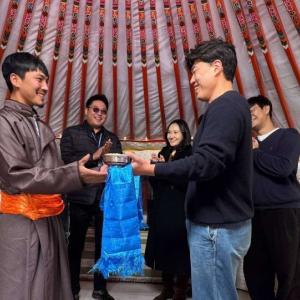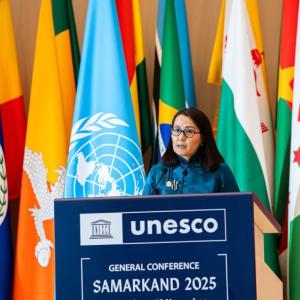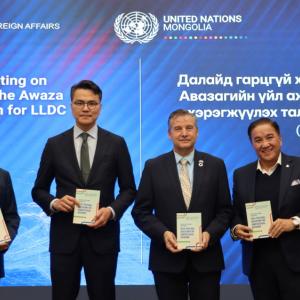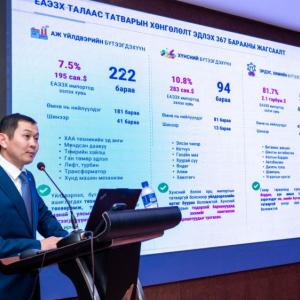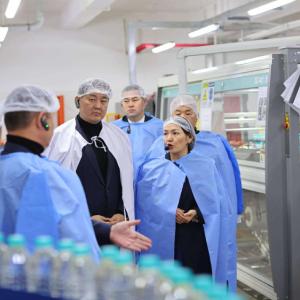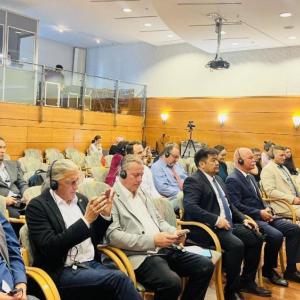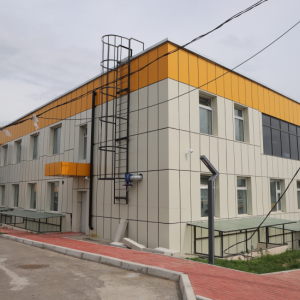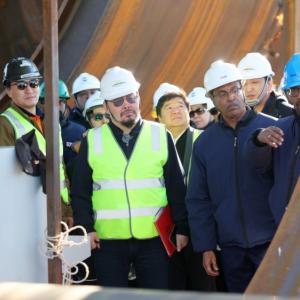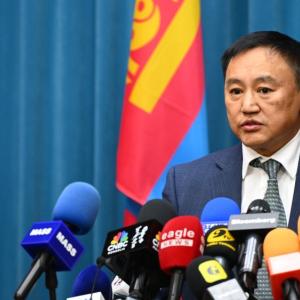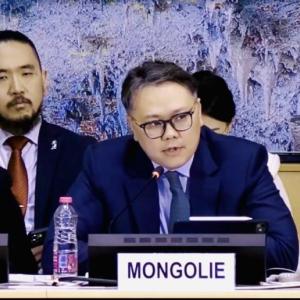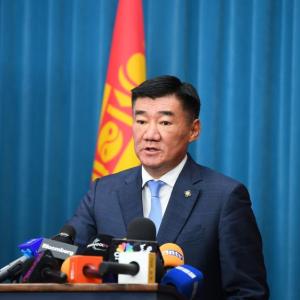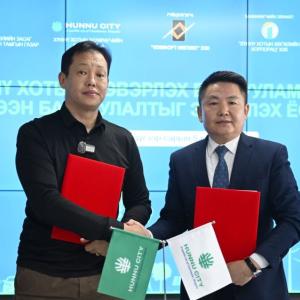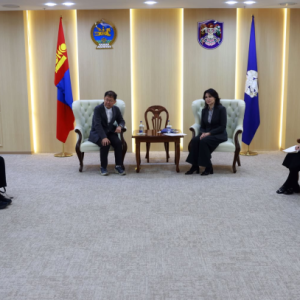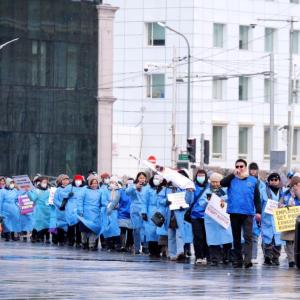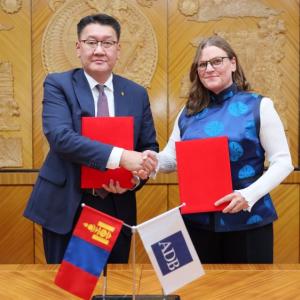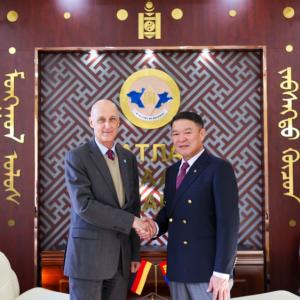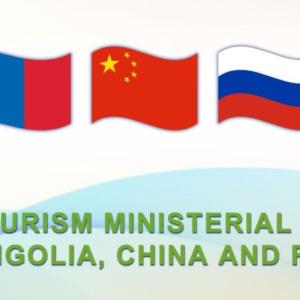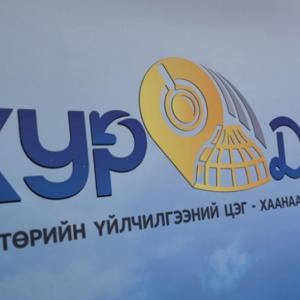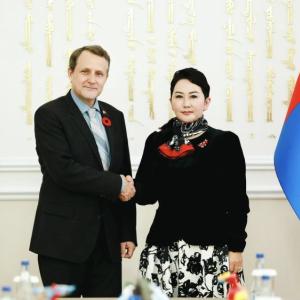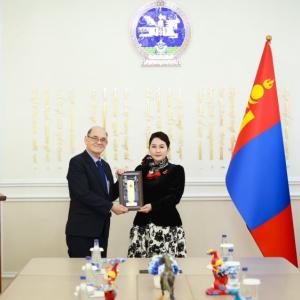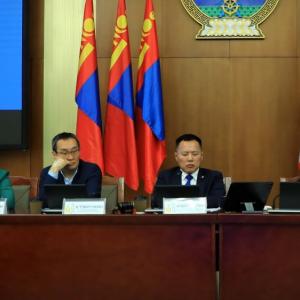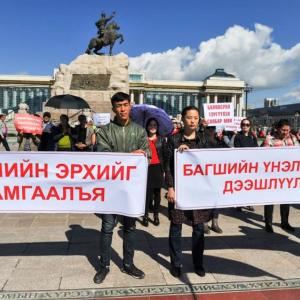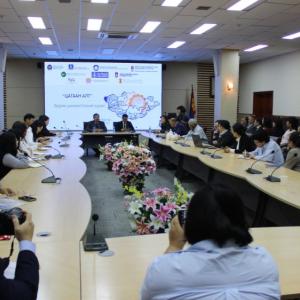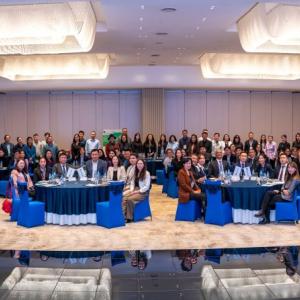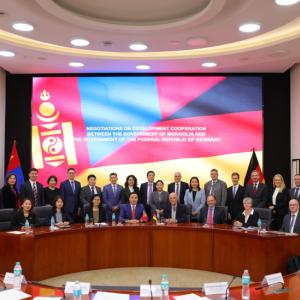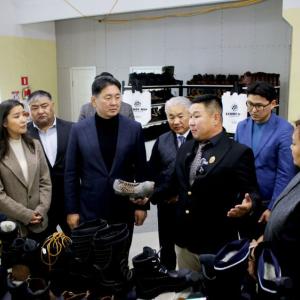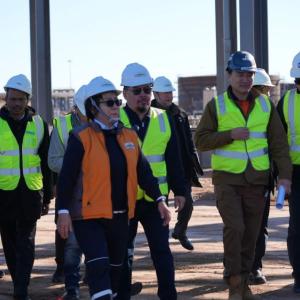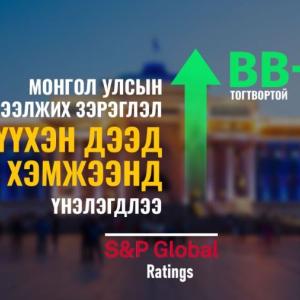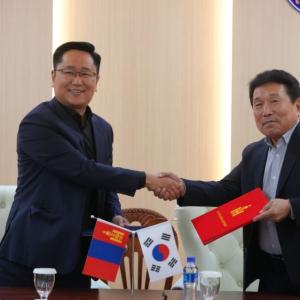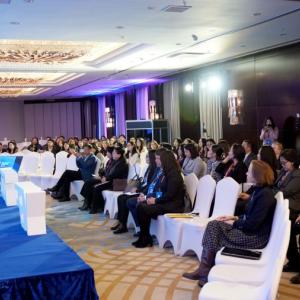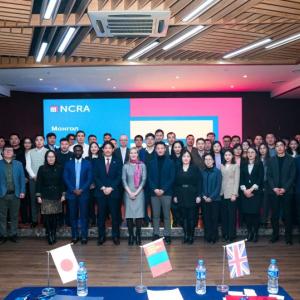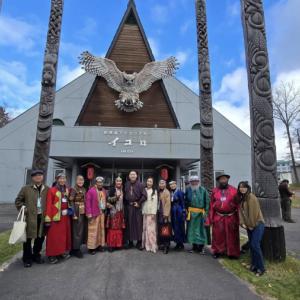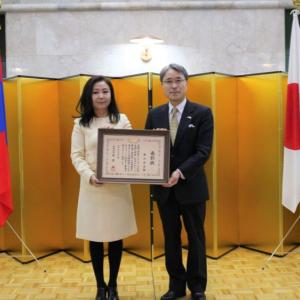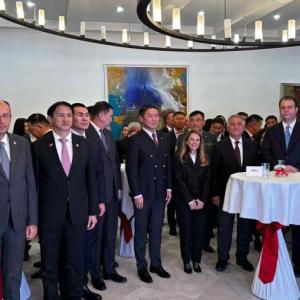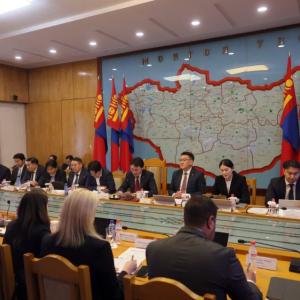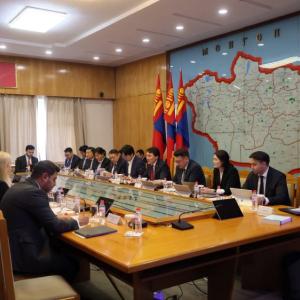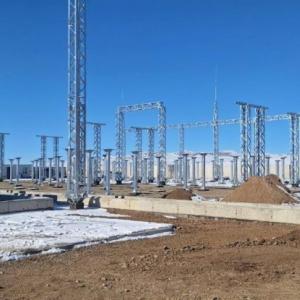AmCham Mongolia’s Monthly Meeting encourages rapid restructuring of state-owned enterprises
Economy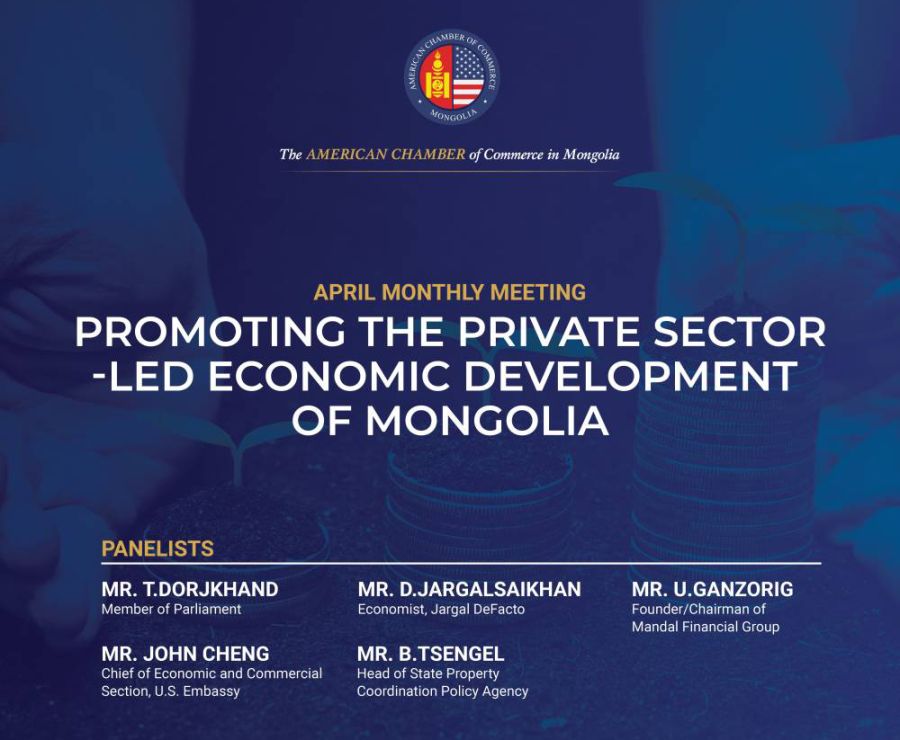
Ulaanbaatar/MONTSAME/. On April 5, the American Chamber of
Commerce in Mongolia (AmCham Mongolia) organized its April Monthly Meeting,
Promoting the Private Sector-led Economic Development of Mongolia. The panelists for the event were Member of
Parliament T. Dorjkhand, independent economist D. Jargalsaikhan (Jargal
DeFacto), Founder and Chairman of Mandal Financial Group U. Ganzorig, Chief of
the Economic and Commercial Section at the U.S. Embassy John Cheng, and Head of
the State Property Coordination Policy Agency B. Tsengel. The Monthly Meeting
was held in a hybrid format – in-person and virtual, with more than 80 people
in attendance, including representatives of the AmCham community, foreign and
domestic investors, diplomatic officials, and journalists.
In his opening remarks, Mr. B. Tsengel, head of the State
Property Coordination Policy Agency, gave detailed information about the
current status of state-owned enterprises (SOEs), citing legislative changes
adopted for SOEs to become more efficient and productive. He noted that the New
Revival Policy includes changes to governance and human resource procedures for
appointing heads of SOEs to reduce corruption and politically motivated
appointments.
MP T. Dorjkhand spoke about the structure of governing
bodies and how they regulate SOEs. Current practices have detrimental effects
on private sector competitiveness, creating increasingly difficult
circumstances for private businesses to win state tenders and signaling the
need for reforms and restrictions. He also emphasized that large-scale corruption
has slowed private sector growth for the past 30 years, stating, “The
government cannot do business with itself.” This is evident when SOEs are
recognized as the nation’s top taxpaying companies at the end of the fiscal
year.
Mandal Financial Group’s founder and chairman, Mr. U.
Ganzorig, proposed that public-private engagements should be formed for at
least three to five years, exceeding the four-year political lifecycle, or for
even longer terms that are carefully planned and guaranteed. He urged
participants to be proactive when demanding accountability from the government.
Mr. John Cheng, chief of the Economic and Commercial Section
at the U.S. Embassy in Mongolia, states, “Mongolia’s government, much like any
other governing body across the globe, recognizes its role as a regulator and
is interested in maintaining the stable income of its enterprises. It’s when
they see these enterprises as the sole channel of revenue, with a motive for
profiteering, that it paints an uglier picture.” He acknowledged the previous
speakers’ valuable insights on restructuring SOEs and how greater transparency
between stakeholders will lead to successful transformation. In his closing
words, he noted, “Mongolia does not have to look to nations that are necessarily
bigger or better but should look for similar countries with success stories.
For instance, Romania recently reshaped its own state entities without
divesting from them.”
Mr. D. Jargalsaikhan, the founder of DeFacto Research
Institute, pointed out that to achieve maximized growth and efficiency, all
sectors of the economy need increased cluster initiatives. Furthermore, current
government structure and practices are not very appealing to the private
sector, and major reforms should be considered with a sense of urgency. He
emphasized that the fouryear political cycle and regulations need to be more
stable and forthcoming. To achieve these changes, the General Election
Committee should be reformulated as the “Votes Committee”, working on a daily
basis to ensure that election monitoring and mechanisms are in place to ensure
reforms.
At the end of the Monthly Meeting, the guest speakers
answered all questions from the audience and provided final remarks.
Source: amcham.mn
 Ulaanbaatar
Ulaanbaatar







